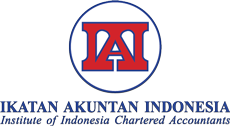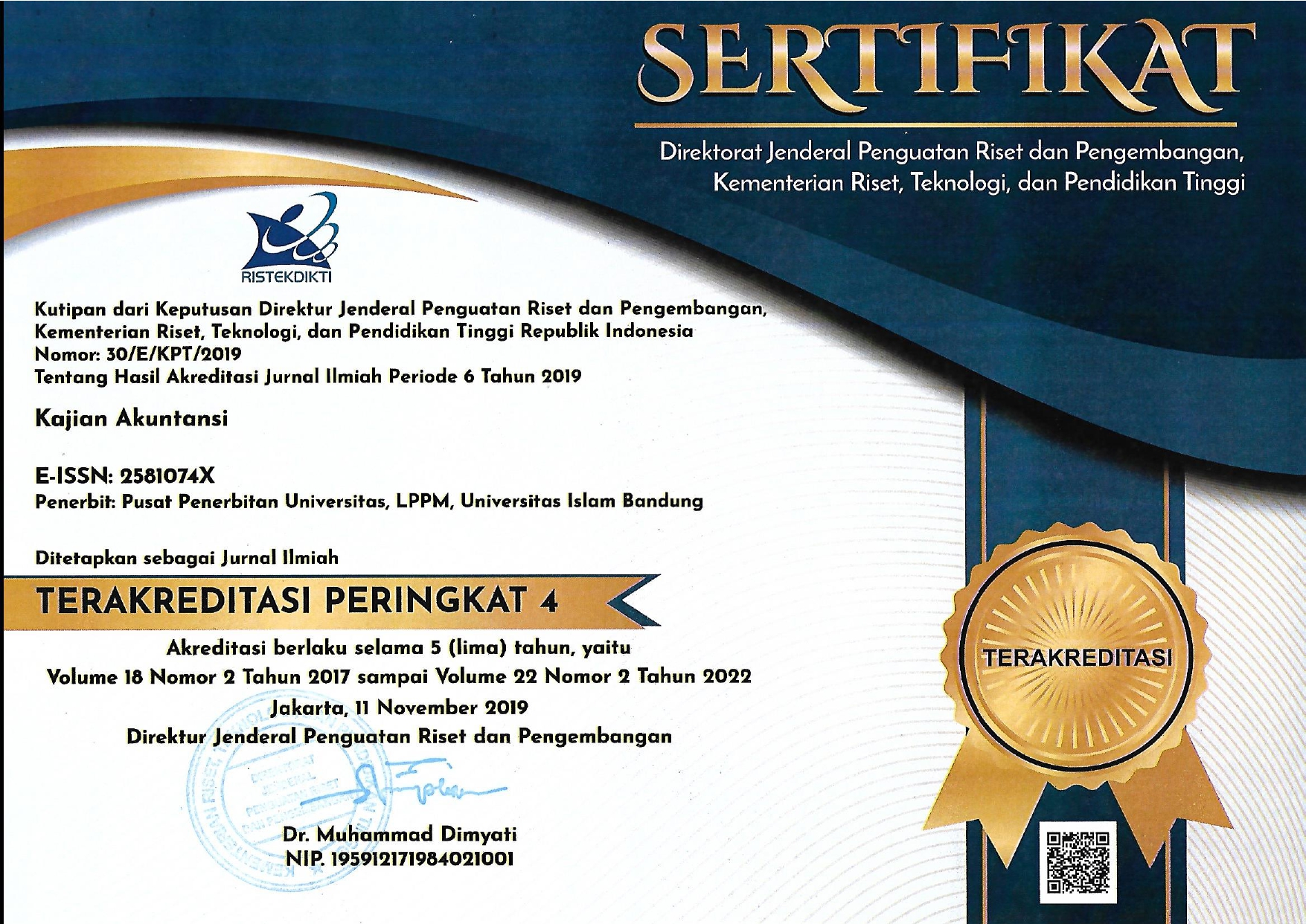Corporate Governance and Strategic Disclosure Practice: Evidence from Indonesia
Abstract
Keywords
Full Text:
PDFReferences
Akhtaruddin, M., and H. Haron. 2010. Board ownership, audit committees effectiveness, and corporate voluntary disclosures. Asian Review of Accounting 18(3): 45-259.
Eng, L. L. and Y. T. Mak. 2003. Corporate governance and voluntary disclosure. Journal of Accounting and Public Policy 22: 325-345.
Ghozali, I. 2011. Aplikasi Analisis Multivariate dengan Program IBM SPSS 19. Badan Penerbit Universitas Diponegoro. Semarang
Jensen, M. C., and W. H Meckling. 1976. The theory of a firm: managerial behavior, agency costs, and ownership structure. Journal of Financial Economics 3(4): 305-360.
Ho, P. L., and G. Taylor. 2013. Corporate governance and different types of voluntary disclosure evidence from Malaysian listed firms. Pacific Accounting Review 25(1): 4-29.
Ismail, T. H., and N. M. El-Shaib. 2012. Impact of market and organizational determinants on voluntary disclosure in Egyptian companies. Meditari Accountancy Research 20(2): 113-33.
Ntim, C. G., K. K. Opong, and D. A. Thomas. 2012. Voluntary corporate governance disclosures by post Apartheid South African corporations. Journal of Applied Accounting Research 13(2):122-144.
Probohudono, A. N., G. Tower, and R. Rusmin. 2012. Risk disclosure during the global financial crisis. Social Responsibility Journal. Vol. 9(1): 124-136.
Qu, W., P. Leung, and B. Cooper. 2013. A study of voluntary disclosure of listed Chinese firms a stakeholder perspective. Managerial Auditing Journal 28(3): 261-94.
Said, R., Y. Zainuddin, and H. Haron. 2009. The relationship between corporate social responsibility disclosure and corporate governance characteristics in Malaysian public listed companies. Social Responsibility Journal 5(2): 212-26.
Santema, S., M. H. J. V. D. Rijt, and A. V. Oijen. 2005. Strategy disclosure in annual report across Europe: a study on differences between on five countries. Europe Business Review 17(4): 352-366.
Xie, B., I. Davidson, N. Wallace, and P. Dadalt. 2003. Earnings management and corporate governance: The role of the board and the audit committee. Journal of Corporate Finance 9(3): 295-316.
DOI: https://doi.org/10.29313/ka.v24i1.6097
Refbacks
- There are currently no refbacks.
Copyright (c) 2023 Kajian Akuntansi
Indexed by:
This work is licensed under a Creative Commons Attribution-NonCommercial-ShareAlike 4.0 International License.










